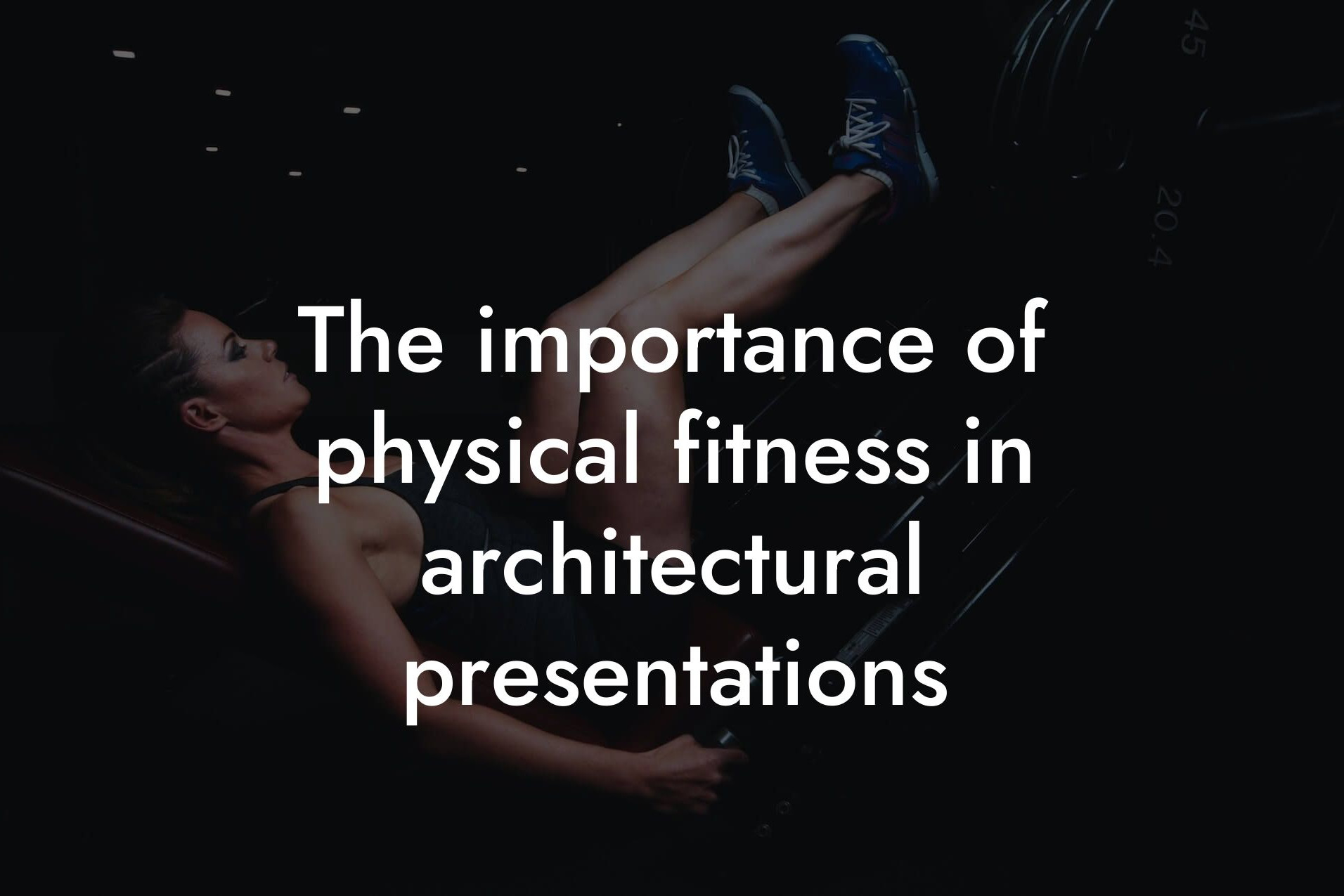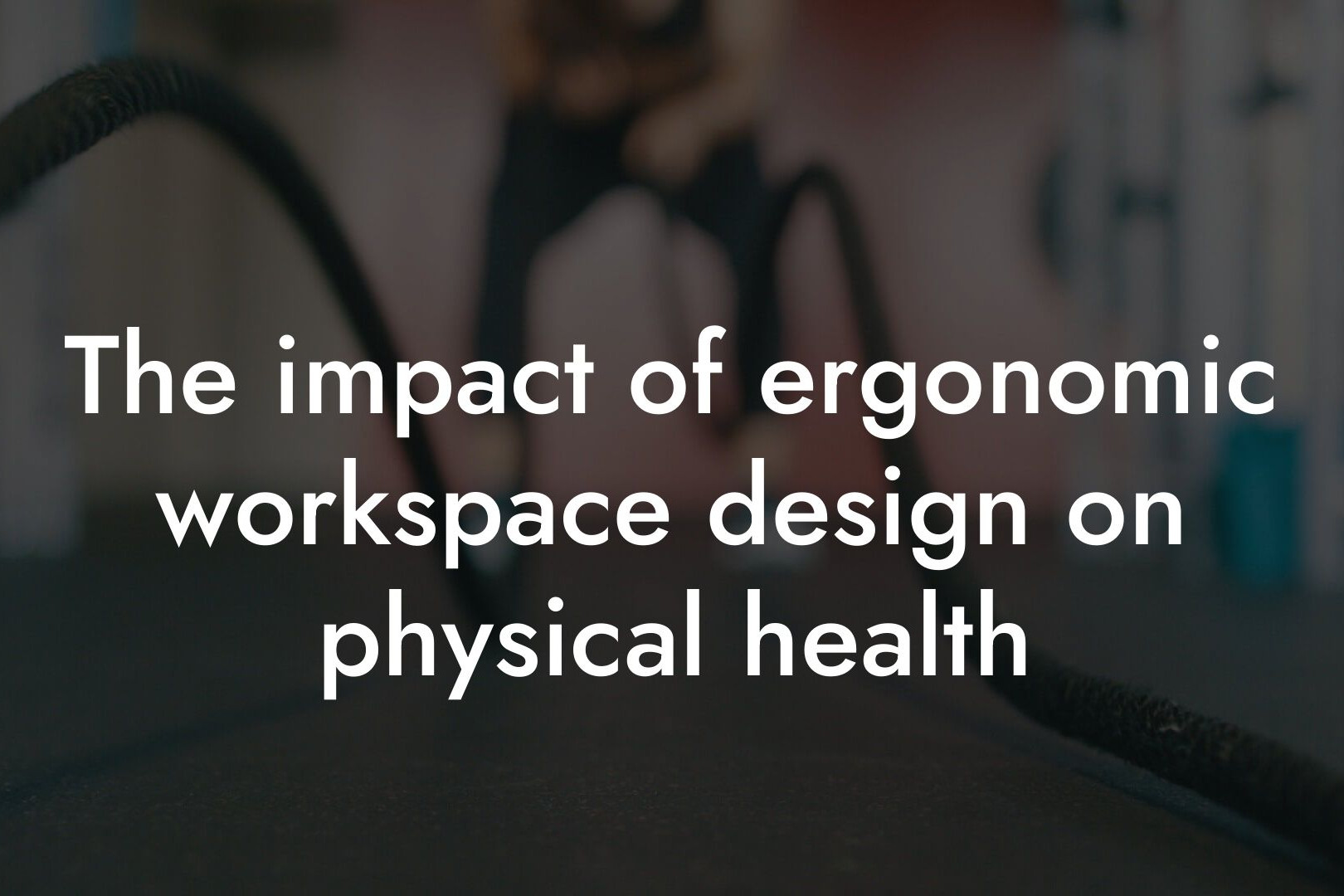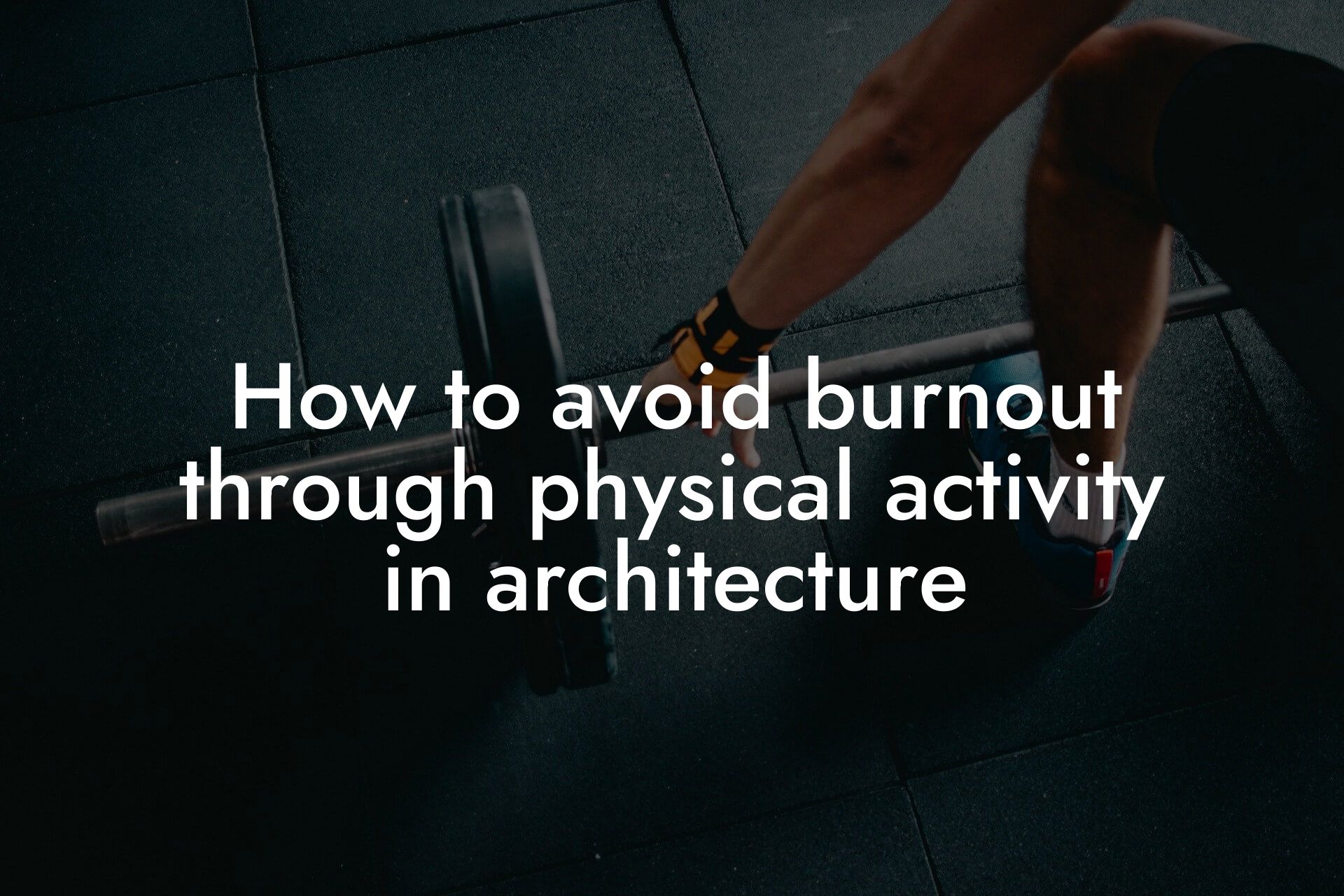As a design professional, you're no stranger to the demands of meeting tight deadlines, managing multiple projects, and exceeding client expectations. However, in the midst of juggling these responsibilities, it's easy to neglect one crucial aspect: your personal health. At Tano Performance Group, we understand the importance of prioritizing your well-being to maintain peak performance in your career. In this article, we'll delve into the challenges of balancing client demands with personal health in design professions and provide actionable tips to help you achieve a better work-life balance.
Table of Contents
- The Consequences of Neglecting Personal Health
- The Impact of Client Demands on Mental Health
- The Importance of Self-Care in Design Professions
- Time Management Strategies for Design Professionals
- Boundary Setting with Clients
- The Role of Nutrition and Exercise in Design Professions
- Monitoring Your Body Composition with DEXA Scans
- Creating a Support Network
- Frequently Asked Questions
The Consequences of Neglecting Personal Health
Design professionals often sacrifice their health to meet the demands of their job. Prolonged periods of sitting, inadequate nutrition, and insufficient sleep can lead to a range of health issues, including obesity, chronic fatigue, and decreased productivity. Moreover, neglecting personal health can result in burnout, a state of emotional, mental, and physical exhaustion that can have severe consequences on your career and overall well-being.
The Impact of Client Demands on Mental Health
Design professionals often struggle with the pressure to deliver high-quality work, meet tight deadlines, and manage client expectations. This can lead to increased stress levels, anxiety, and depression. According to a study by the American Institute of Graphic Design, 63% of designers experience stress and anxiety, while 45% report feeling overwhelmed. It's essential to recognize the signs of mental health strain and take proactive steps to mitigate its effects.
The Importance of Self-Care in Design Professions
Self-care is not a luxury, but a necessity for design professionals. By prioritizing your physical and mental well-being, you can improve your focus, creativity, and productivity. This, in turn, can lead to better client outcomes, increased job satisfaction, and a more sustainable career. Self-care practices can be as simple as taking regular breaks, practicing mindfulness, or engaging in physical activity.
Time Management Strategies for Design Professionals
Effective time management is critical to balancing client demands with personal health. By prioritizing tasks, setting realistic deadlines, and learning to say "no" to non-essential projects, you can free up time for self-care and personal activities. Consider implementing the Pomodoro Technique, which involves working in focused 25-minute increments, followed by a 5-minute break. This can help you stay focused, avoid burnout, and maintain a healthy work-life balance.
Boundary Setting with Clients
Setting clear boundaries with clients is essential to maintaining a healthy work-life balance. This includes establishing realistic deadlines, communicating your availability, and setting limits on your work hours. By doing so, you can avoid overcommitting, reduce stress, and protect your personal time. Remember, setting boundaries is not about being inflexible, but about being intentional with your time and energy.
The Role of Nutrition and Exercise in Design Professions
A healthy diet and regular exercise are crucial for maintaining energy levels, focus, and creativity. As a design professional, you may be tempted to rely on convenience foods and neglect physical activity. However, this can lead to decreased productivity, poor mental health, and a range of chronic diseases. Consider incorporating nutrient-dense foods, staying hydrated, and engaging in regular physical activity, such as yoga or cardio exercises, to improve your overall health and well-being.
Monitoring Your Body Composition with DEXA Scans
At Tano Performance Group, we understand the importance of monitoring your body composition to achieve optimal health and performance. Our DEXA machine provides a comprehensive body assessment, including measurements of body fat, lean mass, bone density, and more. By tracking your progress, you can make informed decisions about your nutrition, exercise, and lifestyle habits, ensuring you're performing at your best.
Creating a Support Network
As a design professional, you don't have to navigate the challenges of balancing client demands with personal health alone. Consider building a support network of colleagues, friends, and family members who can offer emotional support, advice, and encouragement. You can also join online communities, attend industry events, or participate in mentorship programs to connect with like-minded professionals who share your concerns and goals.
By prioritizing your personal health and well-being, you can achieve a better work-life balance, improve your performance, and increase your job satisfaction. Remember, taking care of yourself is not a luxury, but a necessity for success in the design profession. At Tano Performance Group, we're committed to helping high-earning professionals like you achieve optimal health and performance. Contact us today to learn more about our DEXA body assessment and personalized coaching services.
Frequently Asked Questions
What are the common challenges faced by design professionals in balancing client demands with personal health?
Design professionals often struggle with meeting the demands of their clients while maintaining their own physical and mental well-being. Long working hours, tight deadlines, and high expectations from clients can lead to burnout, stress, and neglect of personal health.
How does neglecting personal health affect design professionals' performance?
Neglecting personal health can lead to decreased productivity, creativity, and focus, ultimately affecting the quality of work delivered to clients. It can also result in increased absenteeism, turnover, and decreased job satisfaction.
What are the physical health risks associated with a design profession?
Design professionals are at risk of developing musculoskeletal disorders, eye strain, and poor posture due to prolonged sitting and computer use. They may also experience sleep disturbances, fatigue, and weight gain due to irregular working hours and poor eating habits.
How can design professionals prioritize their mental health?
Design professionals can prioritize their mental health by taking regular breaks, practicing mindfulness, and engaging in physical activity. They can also set realistic goals, learn to say no to excessive workload, and maintain a healthy work-life balance.
What role does self-care play in maintaining a healthy work-life balance?
Self-care is essential in maintaining a healthy work-life balance. It involves taking care of one's physical, emotional, and mental well-being through activities such as exercise, meditation, and spending time with loved ones.
How can design professionals manage their time effectively to meet client demands and prioritize personal health?
Design professionals can manage their time effectively by setting realistic deadlines, prioritizing tasks, and taking regular breaks. They can also learn to delegate tasks, say no to non-essential work, and maintain open communication with clients.
What are the benefits of prioritizing personal health in design professions?
Prioritizing personal health can lead to increased productivity, creativity, and job satisfaction. It can also result in better relationships with clients, improved physical and mental well-being, and a reduced risk of burnout.
How can design professionals communicate their personal health needs to clients?
Design professionals can communicate their personal health needs to clients by setting clear boundaries, being transparent about their work schedule, and negotiating realistic deadlines. They can also educate clients about the importance of work-life balance and its impact on the quality of work delivered.
What are some healthy habits that design professionals can adopt to improve their physical health?
Design professionals can adopt healthy habits such as regular exercise, healthy eating, and proper sleep habits to improve their physical health. They can also take regular breaks to stretch, move around, and rest their eyes.
How can design professionals manage stress and anxiety in their profession?
Design professionals can manage stress and anxiety by practicing mindfulness, meditation, and deep breathing exercises. They can also engage in physical activity, take regular breaks, and maintain a healthy work-life balance.
What is the importance of setting boundaries in design professions?
Setting boundaries is essential in design professions to maintain a healthy work-life balance and prioritize personal health. It involves setting clear expectations with clients, saying no to excessive workload, and maintaining a realistic workload.
How can design professionals maintain a healthy work-life balance while working remotely?
Design professionals can maintain a healthy work-life balance while working remotely by setting a dedicated workspace, establishing a routine, and taking regular breaks. They can also maintain open communication with clients and set clear boundaries.
What are some common myths about prioritizing personal health in design professions?
Common myths about prioritizing personal health in design professions include the idea that taking care of one's health is a luxury, that it's selfish, or that it will negatively impact one's career. However, prioritizing personal health is essential for maintaining productivity, creativity, and job satisfaction.
How can design professionals overcome the stigma associated with prioritizing personal health?
Design professionals can overcome the stigma associated with prioritizing personal health by educating themselves and others about the importance of work-life balance, being open about their personal health needs, and setting a positive example for others.
What are some resources available to design professionals to support their personal health?
Resources available to design professionals to support their personal health include online wellness platforms, fitness apps, and mental health resources. They can also seek support from colleagues, mentors, and healthcare professionals.
How can design professionals prioritize their personal health while meeting tight deadlines?
Design professionals can prioritize their personal health while meeting tight deadlines by taking regular breaks, practicing time management, and maintaining open communication with clients. They can also delegate tasks, say no to non-essential work, and prioritize their well-being.
What is the impact of neglecting personal health on design professionals' relationships?
Neglecting personal health can lead to strained relationships with clients, colleagues, and loved ones. It can result in decreased empathy, increased irritability, and poor communication, ultimately affecting the quality of relationships.
How can design professionals prioritize their personal health while working long hours?
Design professionals can prioritize their personal health while working long hours by taking regular breaks, practicing self-care, and maintaining open communication with clients. They can also prioritize their tasks, delegate work, and maintain a healthy work-life balance.
What are some common challenges faced by design professionals in maintaining a healthy work-life balance?
Common challenges faced by design professionals in maintaining a healthy work-life balance include managing workload, meeting deadlines, and dealing with client expectations. They may also struggle with setting boundaries, prioritizing self-care, and maintaining open communication with clients.
How can design professionals maintain their physical health while working on a computer all day?
Design professionals can maintain their physical health while working on a computer all day by taking regular breaks to stretch, move around, and rest their eyes. They can also prioritize ergonomic furniture, maintain proper posture, and engage in physical activity outside of work.
What is the importance of prioritizing personal health in design professions for career longevity?
Prioritizing personal health is essential for career longevity in design professions. It can lead to increased job satisfaction, improved relationships with clients, and a reduced risk of burnout. It can also result in improved physical and mental well-being, ultimately leading to a longer and healthier career.
How can design professionals prioritize their personal health while working in a fast-paced environment?
Design professionals can prioritize their personal health while working in a fast-paced environment by taking regular breaks, practicing time management, and maintaining open communication with clients. They can also prioritize their tasks, delegate work, and maintain a healthy work-life balance.
Here are some related articles you might love...
- The importance of physical fitness in architectural presentations
- The impact of ergonomic workspace design on physical health
- How to avoid burnout through physical activity in architecture
- How DEXA scans can benefit architects and designers
- Fitness strategies for balancing design work and physical health
- Nutrition for maintaining creativity and energy in design work
- The connection between body composition and creative output
- How architects can stay fit during long design sessions
- How to stay active during the design and build phases
Zak Faulkner
Zak Faulkner is a leading authority in the realm of physical health and body composition analysis, with over 15 years of experience helping professionals optimise their fitness and well-being. As one the experts behind Tano Performance Group, Zak has dedicated his career to providing in-depth, science-backed insights that empower clients to elevate their physical performance and overall health.
With extensive knowledge of DEXA technology, Zak specializes in delivering comprehensive body assessments that offer precise data on body fat, muscle mass, bone density, and overall physique. His expertise enables individuals to make informed decisions and achieve their fitness goals with accuracy and confidence. Zak’s approach is rooted in a deep understanding of human physiology, combined with a passion for helping clients unlock their full potential through personalised strategies.
Over the years, Zak has earned a reputation for his commitment to excellence, precision, and client-focused service. His guidance is trusted by top professionals who demand the best when it comes to their health. Whether advising on fitness programs, nutritional strategies, or long-term wellness plans, Zak Faulkner’s insights are a valuable resource for anyone serious about taking their health and fitness to the next level.
At Tano Performance Group, Zak continues to lead our Content Team revolutionising how professionals approach their physical health, offering unparalleled expertise that drives real results.




